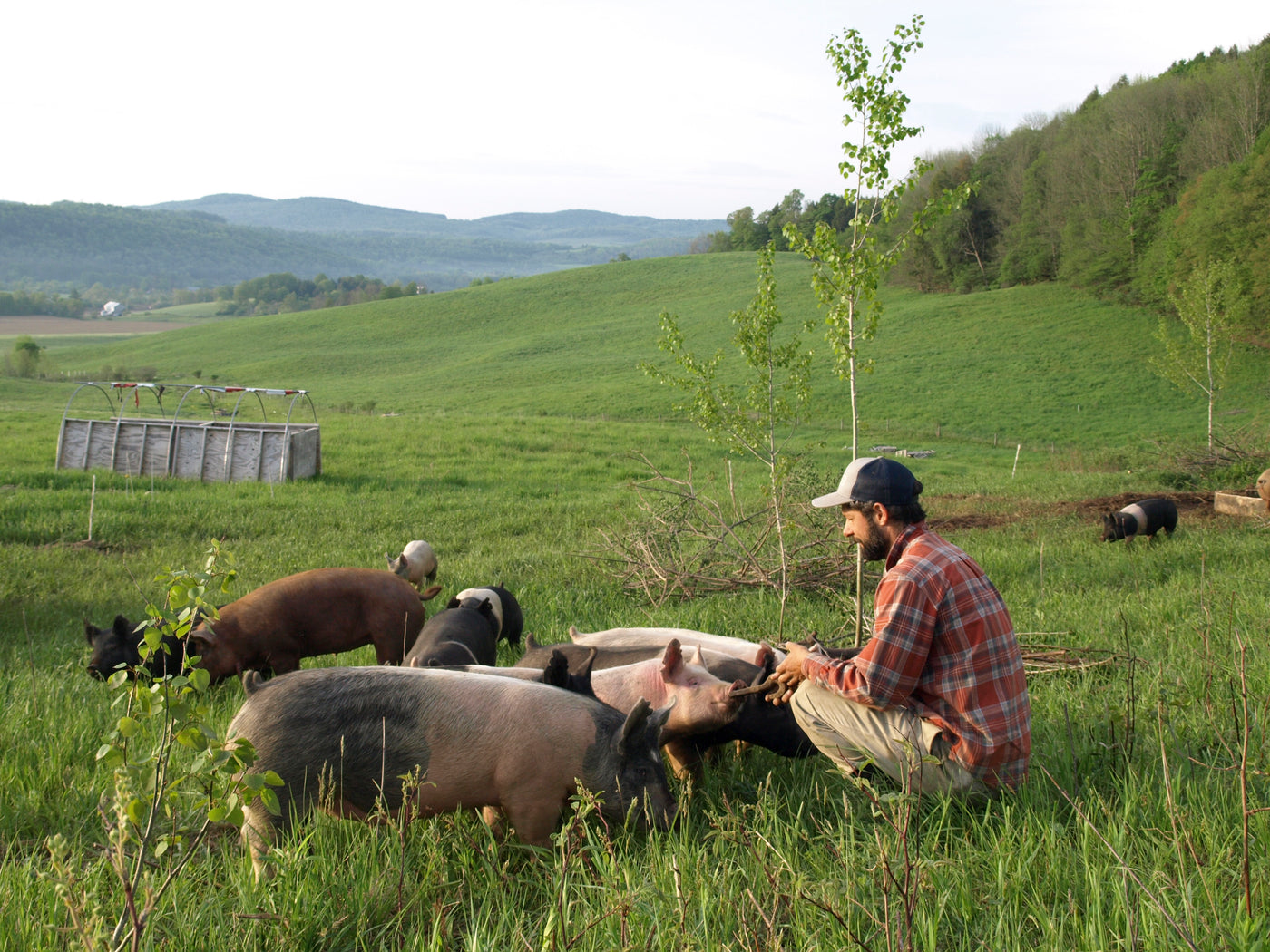
Terminology
A Helpful guide to farming terms
Annual: A plant, like corn, soy, which grows from seed to maturity in a single year.
Biennial: Many pasture plants and weeds, like burdock, are biennial. This means they grow one year, generally building up a big root system, then set seed the second year, after which they die. Many vegetables, like carrots and cabbages, are biennial.
Feedlot: In conventional beef production cows are moved to a feedlot to finish. This means they are fed roughage in the form of hay, beet pulp, or other fiber source, blended with grain and other high energy food concentrates that rapidly fatten them.
Finish: The degree of fat on an animal, particularly a cow. Adequate fat is necessary for proper flavor development, and grass-fed animals generally take longer to finish. "Finishing" refers to the period on which a cow is fattening before slaughter.
Grass Fed: When used honestly, this means an animal that only eats grass and other forages like clover. When used dishonestly, it means that an animal eat some grass, but may also eat other stuff.
Grass Finished: Because some people use grass-fed dishonestly (see above), the term grass-finished is used as an extra, cross-my-heart, pinky-swear promise that a cow or other animal really, truly, never ever ate grain.
Pastured: When used to describe pigs or chickens, this means they are raised on grass as well as getting a grain ration. When used to describe cows or sheep it can mean anything from access to a small, overgrazed lot to animals that eat lots of pasture. Look for it on pork and poultry, but be aware that it is usually a step down from grass-fed when it comes to beef, lamb, or dairy.
Rotational Grazing: The practice of moving animals frequently in imitation of the interaction between wild herds and their grassland habitat.
